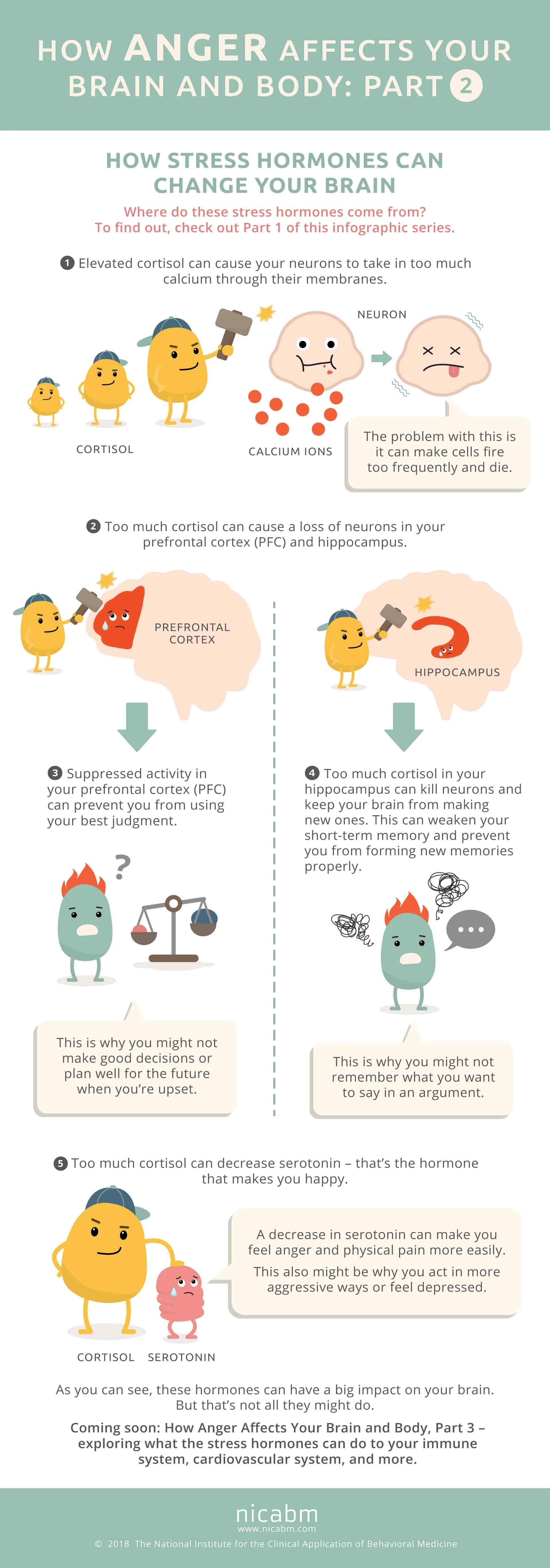Anger is Killing Your Brain Cells
Remember that old television ad, “this is your brain on drugs”? It showed an egg frying in a pan.
Well, this is your brain on ager.
Anger is killing your brain cells.
It has to do with the overload on your brain of the stress hormone cortisol.
You can read more about cortisol and the stress hormone cascade in part 1 of this 2 part series:
Anger triggers a release of cortisol, and one of the results of cortisol is an increase in the uptake of calcium ions through the cell membranes of your neurons (aka brain cells).
This increased uptake of calcium ions causes your nerve cells to fire too frequently and can lead to their deaths.
Too much cortisol over time leads to a loss of neurons in the areas of your brain called your prefrontal cortex and your hippocampus.
The prefrontal cortex is a part of your brain, and it’s located in the area of your forehead. It has a variety of complex functions, including planning, and it contributes to personality development.
The hippocampus is the part of your brain that’s thought to be the center of emotion, memory, and the autonomic nervous system.
Check out this fantastic infographic courtesy of The National Institute for the Clinical Application of Behavioral Medicine (nicabm).
Why does it matter if these areas shrink?
When healthy functioning of the prefrontal cortex is diminished, it inhibits using your best judgment. Can you relate to that? After the anger settles, you wonder why you did or said something. It seemed justified at the time, but in hindsight, you see it was excessive.
In the hippocampus, neuron death from cortisol weakens short term memory. This is why it’s hard to remember all the details of a traumatic event or a fit of anger.
There there’s serotonin, our happy hormone.
Cortisol decreases serotonin, and decreased serotonin makes you feel anger and pain more strongly. It leads to depression.
Thus the cycle continues.
We all have anger.
The question is, how can you stop it from damaging your brain, your body, and your life?
If you recognize that diminishing anger would benefit you and the people around you, congratulations. That’s the first step in healing.
If you feel stuck in a cycle of anger, or if anger is so familiar to you it just seems like it will never go away, reach out for professional help. Keep reading and learning.
Your anger will diffuse. If I could do it, I know you can do it too.


